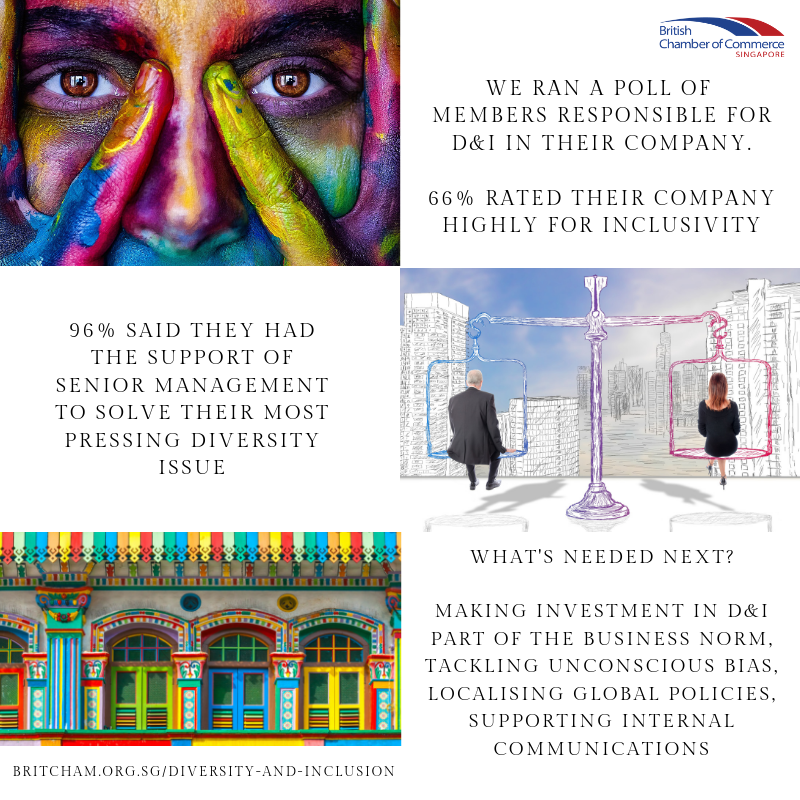Diversity Progress Within the Chamber Network: Survey Results
Across May and June 2019, we polled those in our network who had identified themselves as leading the D&I initiatives in their company. The majority of these contacts are based in Singapore with some leading the charge globally from the UK. From our findings, the drive for inclusion is progressing both in Singapore and globally with issues shifting from a majority-gender discrimination focus towards the more niche areas of diversity which deserve equal attention from employers.
The Chamber is committed to providing support, guidance and activities for those willing to get involved in the conversation. Look out for more news and opportunities to participate on our website at www.britcham.org.sg/diversity-and-inclusion. We encourage everyone, within and outside of our membership, to share their latest reports and progress with us for the benefit of all to learn from. Contact lucy@britcham.org.sg with your updates.
How inclusive is your company?
- 66% of respondents rated their company as 4 or 5 on a sliding scale of inclusivity, with the highest level being 5
Senior management support
- 96% of respondents stated they had the support of senior management to solve their most pressing D&I issue
What D&I issue are you currently problem-solving?
- Grassroots awareness
- Reaching beyond the choir
- Harrassment
- LGBTQ inclusion
- Inclusive workplace culture
- Cultural and race issues
- Unconscious bias
- Gender representatrion at senior levels
- Industry gender bias
- Mental health advocacy
- Conflicting business priorities and short-term result goals
- Perceptions of discrimination that stems from change management
- Internal and external communications of D&I policies and issues
Which areas do you feel need more work for progress to be made in your company?
- Over 30% of respondents felt they had made insufficient progress in these areas:
- Gender identity policies
- Providing D&I training at all seniority levels
- Supporting different abilities
- Communicating sensitive policies
- Mental health support
- Addressing cultural differences
- Sexual orientation policies
- When asked what they felt was holding the company back from further progress, typical responses included:
- Lack of understanding of the issues
- Resources, case stories and sharing of success stories as points of reference
- Transparent communications and training, including unconscious bias
- Conservative mindsets
- Implementing global policies in local teams and cultures
- Avoiding the tickbox or off-the-shelf approach

